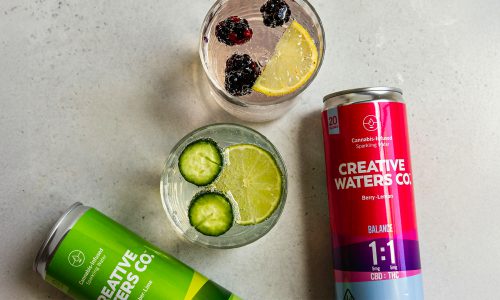Eric Rosen, our cannabis talent strategy expert shares his thoughts on the changes occurring in the beverage and cannabis market, having helped multiple companies rebuild their teams to capitalize on these new opportunities.
Change is the only constant—and nowhere is this more evident than in the evolving world of adult beverages. In recent years, traditional alcohol consumption has taken a notable downturn, while cannabis and hemp-derived THC products have surged into the mainstream. This shift isn’t just a fleeting trend; it signals a broader movement toward healthier, more mindful consumption choices.
A Steady Decline in Alcohol Consumption
Over the past several years, studies have shown that fewer Americans are reaching for alcoholic beverages. For instance, Gallup data indicates that the proportion of U.S. adults who drink alcohol dropped from about 65% in 2019 to roughly 60% in 2021—a decline of nearly 7.7% relative to earlier levels. This downward trend is even more pronounced among younger demographics, where many cite health concerns, the appeal of “sober curious” lifestyles, and the availability of non-alcoholic alternatives as key factors. As consumers become more aware of the downsides of overindulgence—hangovers being a prime example—the market for traditional alcoholic beverages is contracting.
The Rise of Cannabis and Hemp THC Products
In contrast, the cannabis industry is experiencing an explosive boom. In 2024, U.S. adult-use and medical cannabis sales reached an impressive $31.4 billion—a figure that represents a roughly 9% year-over-year increase. Additionally, surveys reveal that approximately 15% of Americans reported using cannabis in the 2023–2024 period, reflecting a growing acceptance and regularity of cannabis consumption.
This surge is fueled by a combination of relaxed state laws, increasing public acceptance, and that cannabis and hemp-derived products offer a “healthier” way to unwind. With far fewer of the negative side effects associated with alcohol—no more brutal hangovers—consumers are eagerly embracing alternatives that not only deliver a desired buzz but also align with a modern, wellness-oriented lifestyle.
A Nod to the Past: Returning to Roots
It’s intriguing to note that while these trends feel modern, they echo important parts of America’s past. During the American Revolutionary War, for example, hemp was a vital crop; farmers were even penalized if they didn’t cultivate it, given its widespread use in ropes, sails, and textiles. Fast forward to the 1920s, and alcohol itself became the subject of prohibition. These historical twists remind us that notions of legality and consumption are continually in flux—and today’s shift toward hemp-infused, low-dose THC beverages may well be the next chapter in that long narrative.
Business Implications: Differentiation and Talent
For brands aiming to capitalize on this transformation, the road to success lies in differentiation. Companies that can pivot from traditional beverage models to embrace the unique demands of the hemp-derived THC market are the ones best positioned for growth. Take Minnesota as a case in point: here, hemp beverages are not only available but are being integrated directly into restaurant menus, challenging established cannabis companies to adapt or join the trend.
In this competitive arena, the ability to operate with leaner margins while rapidly building retail footprints and brand equity is paramount. Brands that have previously honed their expertise in the beverage industry are now being sought after to lead this new wave. With support from industry organizations like the Wine & Spirits Wholesalers of America (WSWA)—which is actively pushing for the regulation and distribution of low-dose hemp beverages—the market is set to favor those who combine innovation with proven talent.
Looking Ahead: Embracing Change and Seizing Opportunity
The landscape of adult beverages is in the midst of a seismic shift. As alcohol consumption steadily declines and cannabis products continue to rise, the imperative for businesses is clear: adapt or be left behind. For those ready to navigate this transformation, the key lies in strategic planning, differentiation, and leveraging experienced talent to create brands that resonate with today’s health-conscious consumers.






